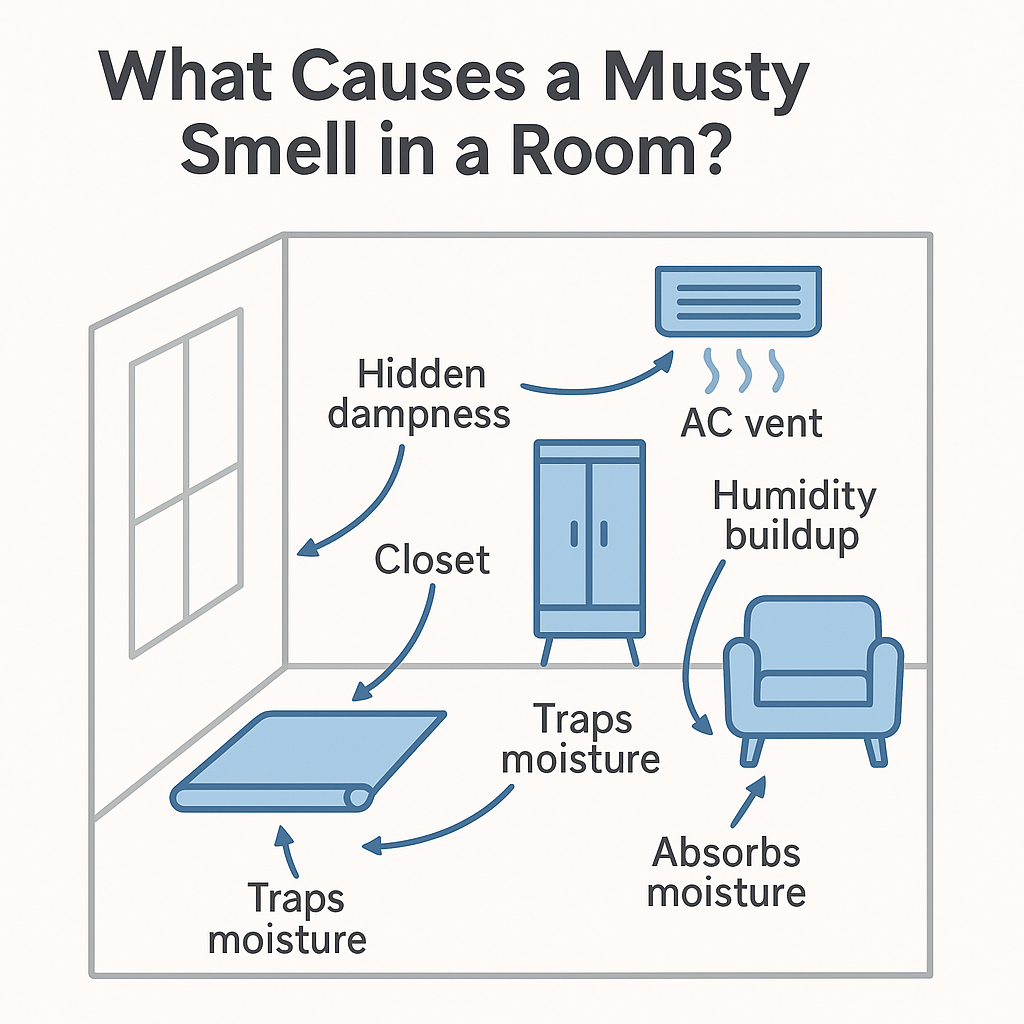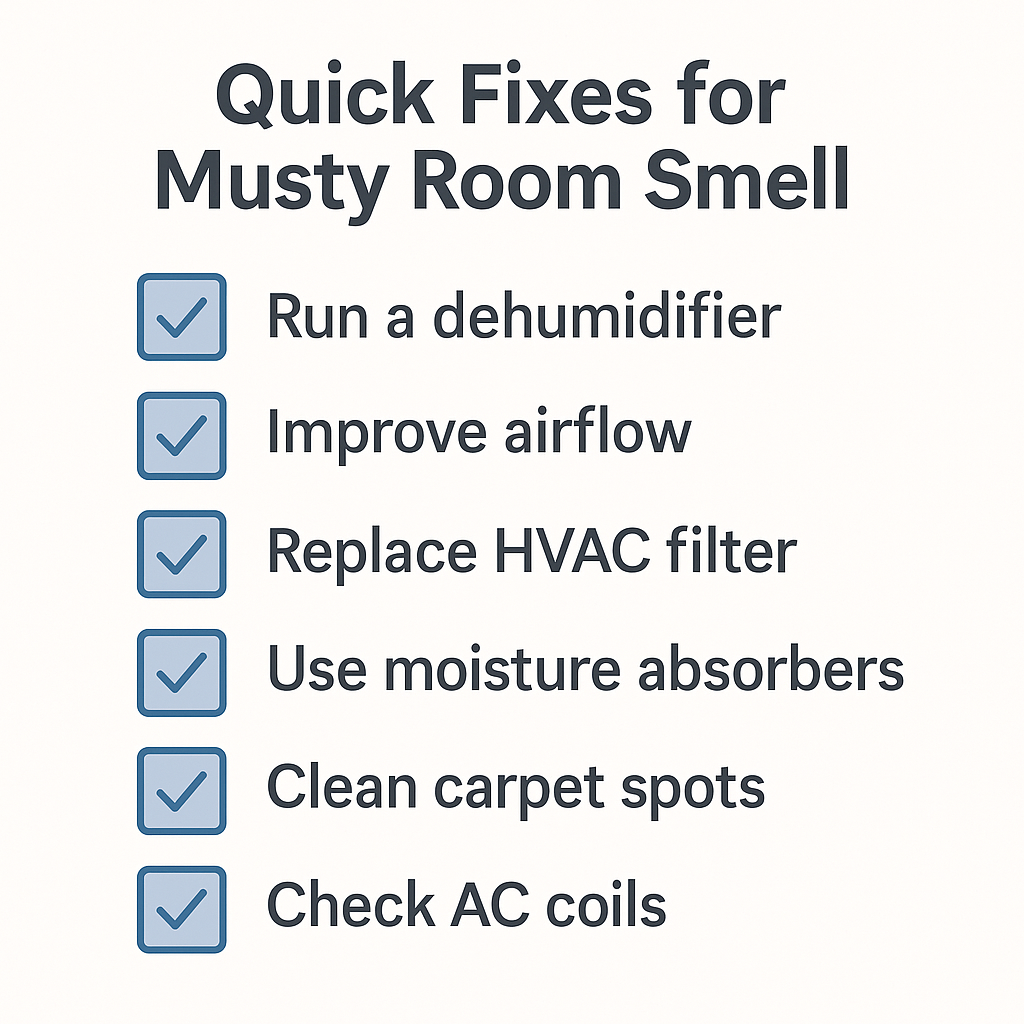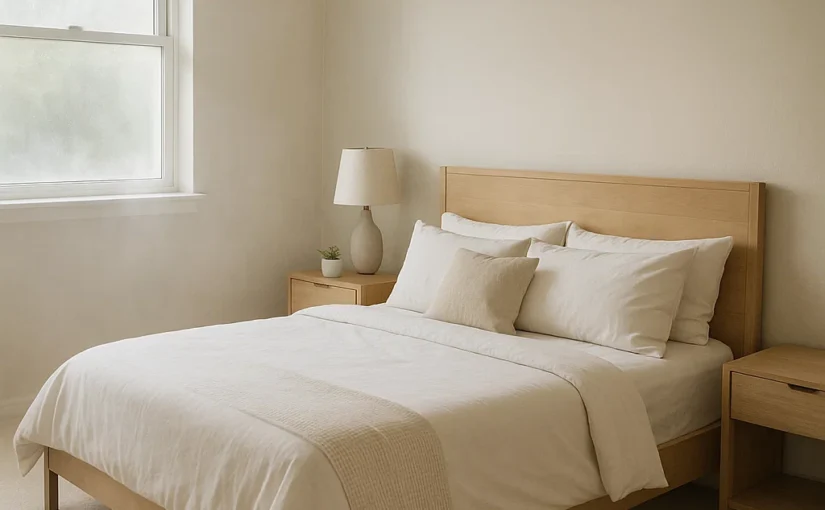Table of Contents
Room Smells Musty but No Mold Visible
Walking into a room that smells musty is frustrating — especially when you’ve searched every corner and can’t find a single patch of mold. The truth is, most musty odors come from hidden moisture or slow-drying materials, not visible mold growth. Odors can appear long before mold becomes noticeable to the eye.
This guide breaks down the most common causes and the easiest fixes to get rid of that damp, stale smell for good.
Why Does a Room Smell Musty Without Mold?
A musty odor forms when moisture sits too long on surfaces like carpet, drywall, clothing, furniture, or inside your HVAC system. Even a small rise in humidity can cause fabrics and building materials to absorb moisture and release that familiar “old basement” smell. Often, the problem is airflow — the room simply can’t dry out on its own.
Common Causes of Musty Smells

1. High Humidity (50–70%)
Humidity is the number one cause of musty odors. When moisture levels stay high, surfaces stay slightly damp, even if you can’t see it. Over time, the moisture creates an earthy smell.
2. Carpet or Rugs Holding Moisture
Spills, pet accidents, and even everyday foot traffic can push moisture deep into the carpet pad. This trapped dampness produces musty odors long before mold appears.
3. AC Not Removing Moisture Properly
A dirty filter, blocked vent, or sluggish AC can prevent your system from removing humidity. This leads to stale, humid air that collects in specific rooms.
4. Closets or Small Spaces With Poor Ventilation
Closed closets, corners, and tight spaces build up stagnant air. Clothing, boxes, and stored items easily absorb moisture and release musty smells.
5. Furniture or Mattresses Absorbing Moisture
Upholstered furniture, pillows, and mattresses can trap humidity — especially if the room is closed off or the temperature fluctuates.
6. Moisture Behind Walls or Under Flooring
You may not see mold, but insulation or subflooring can stay damp from tiny leaks, condensation, or high humidity. The smell often escapes through outlets, baseboards, or floor gaps.

Quick Fixes to Get Rid of the Musty Smell
1. Run a Dehumidifier (Best Fix)
A dehumidifier pulls moisture out of the room quickly and is the fastest way to eliminate musty odors. Keeping humidity between 40–50% prevents smells from returning.
2. Improve Airflow
Open doors, crack a window, or run a fan to keep air moving. Stagnant air is the main reason moisture lingers and odors grow stronger.
3. Replace or Clean Your HVAC Filter
A dirty filter reduces airflow and allows humidity to build up. A simple filter change can dramatically freshen the air.
4. Use Moisture Absorbers in Small Spaces
Products like DampRid or hanging moisture absorbers are perfect for closets, corners, and laundry rooms where airflow is minimal.
5. Deep Clean Carpet Spots or Padding
If carpet is the source, treat the area with an enzyme cleaner or carpet cleaner. Sometimes padding needs extra drying time.
6. Clean AC Coils or Schedule HVAC Maintenance
Dirty evaporator coils can trap moisture and create a stale smell when the AC turns on. A quick HVAC tune-up can clear this issue.
How to Prevent Musty Odors
- Keep humidity between 40–50%
- Run AC regularly, even in mild weather
- Don’t block vents or return air pathways
- Avoid drying laundry indoors
- Leave closet doors open occasionally to improve air movement
When to Worry
You should take a closer look if:
- The musty smell gets stronger each week
- You see discoloration, stains, or damp spots
- Family members feel congested only in this room
- The smell returns immediately after cleaning
These could be signs of a hidden moisture issue that needs professional attention.
Related Reading
- Why AC Makes You Cough?
- Why Humidity Makes Your House Feel Sticky
- What Causes Ozone Smell on Clothes?
- How to Reduce Dust in a Room
“`





